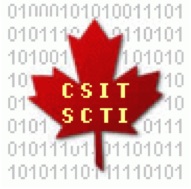[PDF version of the Call for Papers]
IMPORTANT DATES
- Review manuscripts due
February 15, 2016April 7, 2016 - Paper acceptance notification April 25, 2016 April 30, 2016
The 2016 28th Biennial Symposium on Communications (BSC 2016) is a prestigious international research conference in communications, information theory, and signal processing. Organized since 1962 by Queen’s University, the Symposium is now presented by the Canadian Society of Information Theory, and will be held in Kelowna, British Columbia from June 5-8, 2016.
BSC 2016 solicits previously unpublished contributions from a broad range of topics in communications, information theory, and signal processing, including (but not limited to):
- Communication and Information Theory
- Coding and Signal Processing for Communications
- Multiple Antenna Systems and Cooperative Communications
- Communication System Security and Cryptography
- Source coding and Multimedia Communications
- Wireless Networks and Cloud Communication
- Ad-hoc, Sensor and Mesh Networks
- Massive MIMO
- Millimeter Wave Communication
- 5G Wireless Systems
- Optimization Techniques for Communications
- Optical Communication Networks and Systems
- Smart Grid Communications
- Green Communications and Energy Harvesting
- Multiuser Communication and Interference Management
- Cognitive Communications and Ultra-Wideband Systems
- Nanonetworking and Molecular Communication
- Biological Information Theory
- Internet of Things (IoT) / Machine-to-Machine (M2M)
- Software-Defined Networking
- Network Virtualization
Manuscripts for peer review must be submitted through EDAS (http://edas.info) in standard IEEE two-column format (no more than six pages). Accepted papers will be presented orally at the workshop by the authors, and at least one author of each accepted paper is expected to attend the workshop. Conference content will be submitted for inclusion into IEEE Xplore. Please see the conference website for detailed submission instructions.
To control the quality of papers and speakers, we will limit the number of parallel sessions to no more than two and will organize sessions with invited speakers. All accepted papers will require oral presentation by one of the co-authors, and there will be no poster session.




